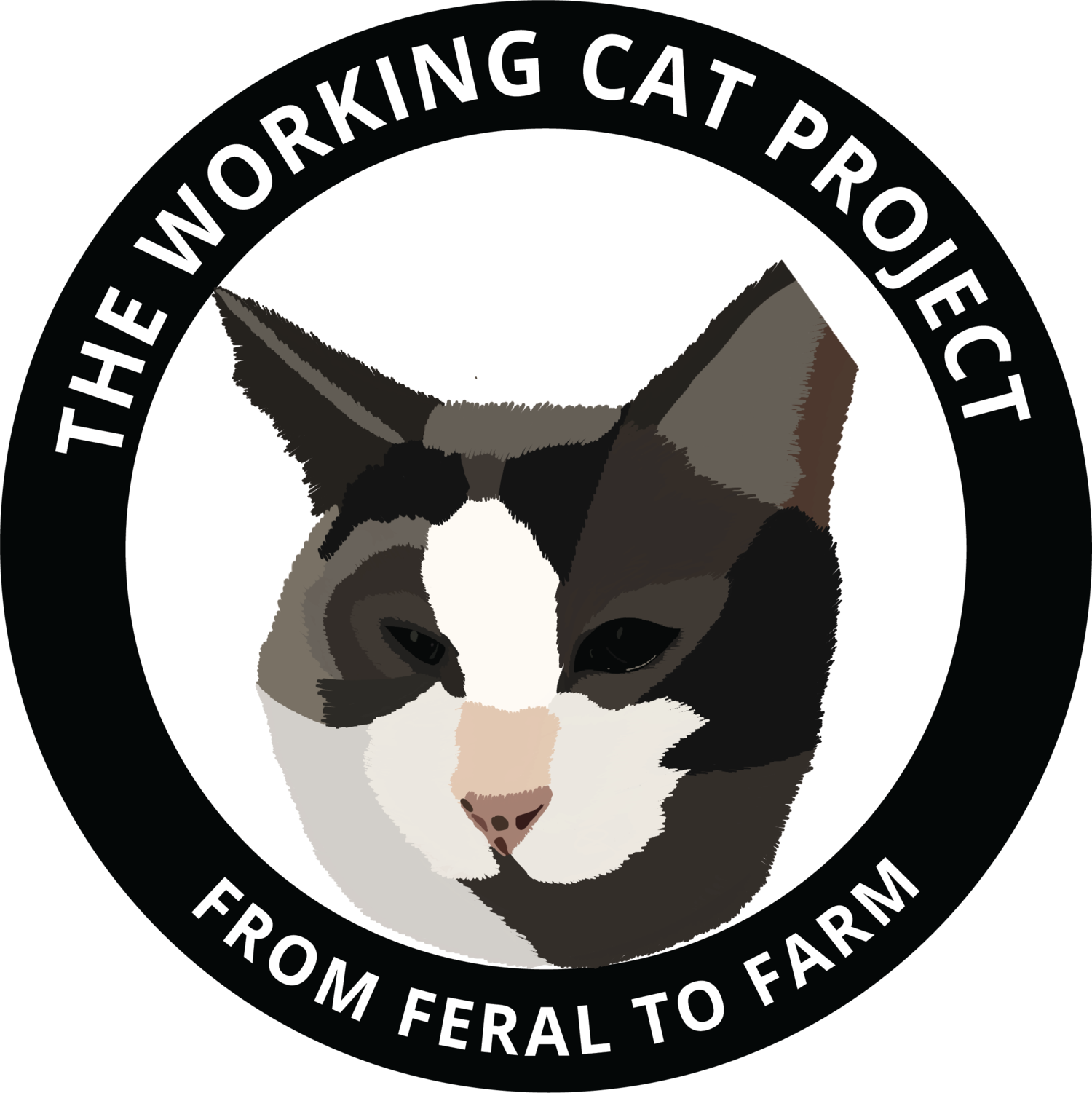
Frequently Asked Questions
Are all of the Working Cats feral adults?
WCP cats range from friendly to feral. The cats either come from dangerous outdoor living situations OR shelters/rescues where it is determined that they will not make good house pets OR shelters that are overcrowded and therefore the cats are at risk of euthanasia. We do place kittens as well who have passed the window for socialization to become a house pet. We will do our best to honor your preferences for demeanor and age, but please understand that we are working to save lives and encourage you to be flexible.
Will you help me relocate feral cats on my property?
Relocation is the very last resort. Feral and community cats are comfortable where they are and there are many risks to relocation. For example, the cat may try to find their way back to their original location once relocated, even when proper procedures are followed. Relocation should only be considered when the area is no longer safe for the cat or the cat will be euthanized in the shelter due to the lack of a TNR (Trap-Neuter-Return) program. Therefore, we will do everything possible to help you care for the cats on your property including providing food, shelters, facilitating TNR, and paying all vet costs. Contact us at info@workingcatprojectky.org for assistance or questions.
Is my property a good fit for the Working Cat Project?
The ideal settings for Working Cats should be safe meaning nothing sharp and hazardous or close to an area with heavy traffic. Cats must be provided with water and cat food daily. Cats should also be provided with a small cat house or similar shelter with straw during cold weather.
How will I deter raccoons and other wildlife from eating the cat food?
Raccoons are great climbers but not good jumpers. Therefore, food should be elevated on a surface that can't be climbed. The surface should be at least 40 inches off the ground. It should have a skirt of smooth sheet metal or plastic to keep the raccoon from being able to obtain a grip to climb. Feeding cats on a regular schedule will also help. The cats will know when to come for food and will eat immediately. This schedule should begin during the kenneling process.
What is the purpose of the 4-week mandatory confinement period?
This period allows the cats to adjust to the new environment. When a feral cat is simply released into an unfamiliar location with no adjustment period, they almost always make a run for it and attempt to get back to where they came from. This is incredibly dangerous for the cat. The cat must spend the entirety of the 4-week period in the kennel. This helps them understand the barn is their safe new home where they will receive food, water, and care. This system is not intended to change the behavior or demeanor of the cat. You may see cats who are just shy become more comfortable with you. However, feral cats will usually remain feral, so please keep your distance to keep them comfortable and calm. We understand it can be frustrating to keep their kennels and litter boxes clean for this 4 week period, but it is very important for the health and safety of the cat. After this, the cat can be released and get to work on pest control, as well as enjoying the good life on your land!
What if my cat escapes their enclosure during the confinement period?
If a cat escapes from the enclosure, the caregiver should set food and water out. This will encourage the cat to stay close. The new caregiver can sprinkle that particular cat’s used litter (specifically feces) around the location. Since cats have a keen sense of smell, this will help lure the cat back. (Thank you Alley Cat Allies!)
How can I get the cats on my property or in my neighborhood spayed/neutered?
Please reach out to us or our friends at Spay Our Strays for assistance!
What is the cost of adopting a working cat?
We do not have a set fee for adopting a working cat! However, we do have a suggested donation of $25 per cat to help offset the cost of vet care and kenneling supplies.
May I adopt a friendly indoor cat or kitten?
Yes, from our partner organization Itty Bitty Kitten Rescue! The Working Cat Project itself only adopts out cats suitable for barn homes.
